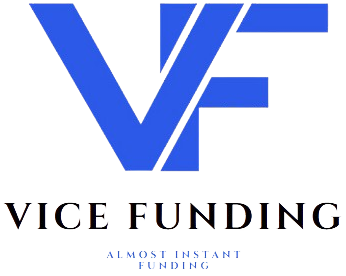
business term loans | Business Loans
Term Loans
Quick Overview
- Re-paid in regular monthly payments over time
- Usually secured by some type of collateral
- Interest rates can be either fixed or variable
- Available from both banks and non-bank lenders
By Joe Marone | Last Updated: August 27, 2024
business term loans | Small Business Loans or Lending
Term Loans
Quick Overview
- Re-paid in regular monthly payments over time
- Usually secured by some type of collateral
- Interest rates can be either fixed or variable
- Available from both banks and non-bank lenders
By Joe Marone | Last Updated: August 27, 2024
A Simple Guide to Term Loans for Small Businesses
When small business owners think about securing a loan, the term loan is often the first option that comes to mind. If you’ve ever had a car loan or a mortgage, you’ve already encountered a term loan. The “term” refers to the length of time over which you’ll make payments—typically measured in months or years. Term loans are used to finance large purchases, like equipment, real estate, or machinery, that will benefit your business for a long period of time.
What is a Term Loan?
A term loan is a business financing option where the borrower receives a lump sum of money upfront and agrees to repay it over a specified period, usually with fixed monthly payments. Term loans are commonly used to finance significant business purchases such as land, equipment, or vehicles.
Term loans are often secured by the asset they are used to purchase, which means the lender can claim the asset if the borrower defaults on the loan.
How Do Term Loans Work?
Term loans operate on the principle of amortization. This means that each payment you make consists of both the interest accrued on the loan and a portion of the loan’s principal balance. The structure of the loan is typically set up so that the principal portion of your payments grows over time as the balance decreases.
If you take out a term loan, the loan amount will be paid back in a set amount of time. This can range from months to decades, depending on the asset being financed and the terms negotiated. For example:
Small Equipment (like computers or copiers) typically has a repayment term of 2-3 years.
Land and Buildings may come with repayment terms spanning 20-25 years.
Some loans, particularly for real estate, may offer balloon payments—larger payments due at the end of the loan term, typically after a shorter repayment schedule (5 to 7 years).
How Term Loan Payments Work
Payments for term loans are usually due monthly and are split between paying down the interest and principal balance. The loan may also have upfront fees or charges added to the principal balance, so it’s important to clarify all fees and terms before committing.
Amortization: Your monthly payment includes both interest and principal. Early payments are often interest-heavy, but over time, more of your payment will go toward the principal.
Late Payment Penalties: If you fail to make a payment on time, you might incur late fees or penalties.
Insurance: For certain loans, the lender may require that the asset purchased with the loan is insured. If you fail to keep the insurance current, the lender might advance the payment and add those costs to your loan.
What Are Some Examples of Term Loans?
Term loans can be used for various types of business needs. Here are a couple of examples:
Restaurant Equipment Purchase: Suppose a restaurant needs new kitchen equipment (like refrigerators, ovens, or dishwashing stations) but doesn’t have the upfront capital. A term loan would allow the restaurant owner to make these purchases upfront and repay the loan over several months or years.
Inventory Purchase for Medical Supplies: A medical supply store might need to stock up on extra inventory due to an increase in demand. The business can take out a term loan to buy the required inventory and repay the loan in installments.
Pros and Cons of Term Loans
Pros of Term Loans:
Quick Access to Capital: Term loans can provide businesses with fast access to the necessary funds to make large purchases.
Lower Interest Rates: Typically, the interest rates for term loans are lower compared to credit cards, making them an affordable option for financing.
Boost Credit Rating: On-time payments can help improve the business’s credit rating, which may make it easier to secure future financing.
Cons of Term Loans:
Risk to Credit: Failure to make payments on time can negatively impact the business’s credit score.
Approval Time: The approval process for a term loan may take longer than other types of loans, especially with traditional lenders.
Late Payment Penalties: Missing a payment can result in penalties, adding extra costs to the loan.
Collateral: Some term loans require collateral, which could put business assets at risk.
Term Loan Eligibility
The eligibility for term loans will depend on several factors, including:
Credit Score: Businesses with higher credit scores are more likely to qualify for favorable terms.
Business Financials: Lenders will typically review balance sheets, income statements, and other financial records.
Collateral: If the term loan is secured, the business will need to pledge assets as collateral.
Time in Business: Lenders often prefer businesses that have been operating for at least a couple of years, as this indicates stability.
Businesses with poor credit may still qualify for term loans from alternative or online lenders, though these loans may come with higher interest rates.
Where to Apply for Term Loans
You can apply for a term loan from various sources, including:
Commercial Banks: Traditional banks offer term loans with more rigid qualifications and longer approval processes.
Online Lenders: Online lending platforms offer faster approval and often more flexible eligibility criteria.
Equipment Manufacturers: Some equipment suppliers offer captured finance options, where you can get financing directly from the manufacturer.
Term Loan Interest Rates and Fees
The interest rate on a term loan depends on several factors, including:
Credit Risk: The lender will assess the borrower’s creditworthiness before offering a rate.
Loan Term: Shorter loan terms often have higher interest rates, while longer terms can have lower monthly payments.
Fixed vs. Variable Rates: Fixed rates stay the same throughout the loan term, while variable rates change according to market conditions. Fixed rates offer predictability, but you may pay a premium for this benefit.
You should also be aware of any fees associated with the loan, such as:
Commitment Fees: A fee for securing the loan, often around 1% of the loan amount.
Closing Costs: Fees based on the collateral, particularly for real estate or equipment loans, and may range from 1% to 7%.
How to Apply for a Term Loan
When applying for a term loan, you’ll need to provide specific documentation about your business, such as:
Business Plan: A detailed explanation of why you need the loan and how the funds will be used.
Financial Statements: Balance sheets, income statements, and tax returns for the past three years.
Assets: Documentation of the assets you intend to purchase with the loan.
Personal Financial Statements: For business owners, personal financial statements may also be required.
The lender will also review your business credit report and personal credit report to assess your eligibility.
Before You Sign
Before signing a term loan agreement, make sure to:
Review Terms: Double-check all the terms, including interest rates, repayment schedules, and any potential penalties for late or early payments.
Ask About Rate Changes: If the interest rate is variable, ask about how and when it might change.
Seek Expert Advice: If you’re unsure about the loan terms, consult with a financial expert or lawyer.
To Sum Up
A term loan is an excellent option for businesses looking to make capital improvements or purchase equipment for long-term growth. While they offer relatively favorable interest rates, qualifying for a term loan can be challenging, especially for new businesses. With proper planning and understanding of the terms, however, a term loan can be a powerful tool to help you achieve your business goals.
Most Popular Guides
Set your business up for financial success.

Ready to get started?
View your options today
Answer some questions in less than 3 minutes, no impact to your credit score, multiple offers YOU are in the driver’s seat!
